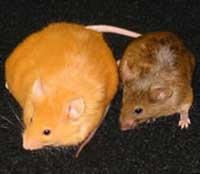Wars demonstrate persistent harmful changes in child DNA
2024/11/20 Galarraga Aiestaran, Ana - Elhuyar Zientzia Iturria: Elhuyar aldizkaria

A study conducted in Lebanon has shown that children living in war-stricken countries may present, in addition to mental health problems, permanent biological effects. This research is part of the BIOPATH cohort study initiated in 2017. In fact, BIOPATH is the first large-scale study among refugee children and lays the groundwork for a better understanding of how trauma affects the development of mental health.
In the BIOPATH research, saliva samples from 1507 Syrian refugees aged between 6 and 19 years were collected and DNA methylation was analyzed. In fact, methylation is an epigenetic process that allows genes to be turned on or off without modifying the DNA code.
Several questionnaires were also completed, as well as by their guardians, who gathered the experiences related to the war. Thus, they have seen that children who have suffered from war experiences had changes in DNA that are related to genes involved in significant functions, such as neurotransmission and intracellular transport.
These changes were also more evident in girls than boys. This suggests that gender is a variable to be considered, since it is possible that the difference at the molecular level is also reflected in health.
The results have been published in the journal Jama Psychiatry of the UPV/EHU. Through research, researchers have confirmed that wars cause children an effective biological footprint and have added that they do not know whether these changes in DNA also appear in other traumatic experiences such as poverty or moral harassment.

Gai honi buruzko eduki gehiago
Elhuyarrek garatutako teknologia




_display.jpg)

